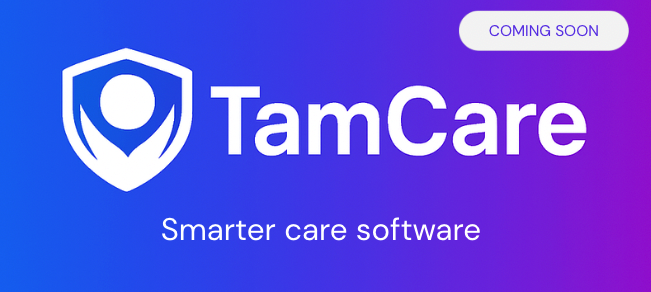The Sleepover Allowance is a crucial component of the Social, Community, Home Care and Disability Services Industry Award (SCHADS Award) in Australia.
It addresses the specific circumstances and responsibilities associated with overnight shifts, often called sleepovers, within the support sector. In this blog we tell you how the Sleepover Allowance works and why support providers must understand it.
Schads Award Sleepover Allowance Overview
The Sleepover Allowance is designed to compensate employees for the time they spend undertaking sleepover duties during a shift. Sleepovers typically occur in residential care facilities, where staff is required to be present and available overnight to ensure the safety and well-being of clients or residents. These duties may include responding to emergencies, providing assistance to individuals with disabilities, and maintaining a secure environment.
How it Works
- Definition of Sleepover: The SCHADS Award defines a sleepover as a period when an employee is required to be present at their place of employment but is allowed to sleep, with the understanding that they may be called upon to perform duties if needed.
- Compensation for Sleepover Time: The Sleepover Allowance ensures that employees are fairly compensated for the time spent on sleepovers. This compensation is separate from the employee’s ordinary hourly rate.
- Calculation of Allowance: The specific calculation of the allowance can vary depending on the circumstances and agreements in place. It may be a flat rate or a percentage of the employee’s ordinary hourly rate.
Why Do Australian Employers Need to Understand the Schads Award Sleepover Allowance?
- Legal Compliance: Understanding and adhering to the Sleepover Allowance is crucial for Australian employers to ensure compliance with industrial relations laws and the SCHADS Award.
- Fair Compensation: By following the Sleepover Allowance, employers can ensure that their employees are fairly compensated for the additional responsibilities and potential disruptions to their sleep during overnight shifts.
To round out this blog, we will break down how the sleepover allowance works using three sample shifts for our fictional support worker, Tina.
Tina is classified as SCHADS Award Level 3, Pay Point 1 (Home Care). As of 2025, her hourly base rate is $32.00 per hour (example figure – actual rates should be verified with Fair Work Australia). The sleepover allowance is a flat rate of $57.19 per night, in addition to any active hours worked during a shift.
Scenario 1: Standard Sleepover (No Interruptions)
Shift details:
4:00 PM – 10:00 PM: Active shift (6 hours @ $32.00/hour)
10:00 PM – 6:00 AM: Sleepover period (allowance applies, but no additional pay unless woken)
6:00 AM – 8:00 AM: Active shift (2 hours @ $32.00/hour)
Calculation:
Active work: 8 hours x $32.00 = $256.00
Sleepover allowance: $57.19
Total earnings: $313.19
Since Tina was not woken during the sleepover period, she receives only the standard sleepover allowance and her active shift pay.
Scenario 2: Sleepover with Disturbance (2 Hours of Work During the Night)
Shift details:
4:00 PM – 10:00 PM: Active shift (6 hours @ $32.00/hour)
10:00 PM – 6:00 AM: Sleepover period (allowance applies)
2:00 AM – 4:00 AM: Work performed during sleepover (2 hours @ $32.00/hour)
6:00 AM – 8:00 AM: Active shift (2 hours @ $32.00/hour)
Calculation:
Active work: 10 hours x $32.00 = $320.00
Sleepover allowance: $57.19
Total earnings: $377.19
When a worker is required to perform duties during a sleepover shift, they must be paid their ordinary hourly rate for those hours worked. In this case, Tina worked an additional 2 hours during the sleepover, increasing her total pay.
Scenario 3: Full Weekend Stay (Two Sleepovers)
Shift details:
Friday: 4:00 PM – 10:00 PM: Active shift (6 hours @ $32.00/hour)
Friday Night: 10:00 PM – 6:00 AM: Sleepover (allowance applies)
Saturday: 6:00 AM – 10:00 AM: Active shift (4 hours)
2 hrs @ 150% = 2 × $48.00 = $96.00
2 hrs @ 200% = 2 × $64.00 = $128.00
Saturday Night: 10:00 PM – 6:00 AM: Sleepover (allowance applies)
Sunday: 6:00 AM – 12:00 PM: Active shift (6 hours @ 200%) = 6 × $64.00 = $384.00
Calculation:
Friday active: 6 × $32.00 = $192.00
Saturday active: $224.00
Sunday active: $384.00
Sleepover allowance (2 nights): 2 × $57.19 = $114.38
Total earnings: $914.38
Weekend shifts under the SCHADS Award attract penalty rates—time and a half on Saturdays (for the first 2 hours), then double time, and double time all day on Sundays. Tina was not disturbed during the sleepovers, so only the standard allowance applies.
Key Takeaways for Disability Support Providers
Sleepover periods are compensated at a flat rate ($57.19 per night in this example), unless the worker is required to perform duties.
If a worker is woken and required to work during a sleepover, they must be paid their ordinary hourly rate for the hours worked.
Shift planning is crucial to ensure compliance with the SCHADS Award and fair remuneration for support workers.










